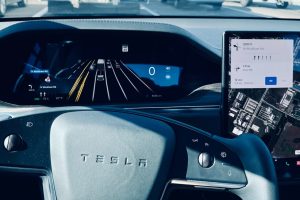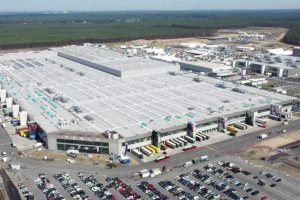Tesla’s online approach of selling direct-to-consumer is inspiring others. According to the Wall Street Journal, “As car companies go electric, some are trying to wrest control from dealers on how those vehicles will be priced and sold, aiming to make the experience closer to the direct-selling model used by Tesla.”
“We looked at the competition that had gone before us, and frankly that’s predominantly Tesla. They created this online-order system,” said VW U.S. sales chief Ray Mikiciuk. In turn, VW has been relying solely on online orders for its all-electric ID.4, rather than shipping them to stock dealer lots.
“The additional costs of electrification cannot be paid by the consumer,” said Stellantis CEO Carlos Tavares. Therefore, he’s working a novel retail model (involving less dealer participation) that he described as a “direct-sales approach” for EVs.
“The EV customers are not like our [internal-combustion-engine] customers,” Ford Chief Executive Jim Farley said during an investor conference last month. He’s looking for customers to place factory-direct orders at a no-haggle price. The dealership would still be involved but mostly just to deliver the vehicle.
Meanwhile, “GM is requiring its GMC-brand dealers to follow similar guidelines to sell the recently introduced Hummer electric pickup truck. The agreement stipulates that the dealers will be shipped only Hummers ordered by customers through GMC’s website,” according to a GM spokeswoman.
So why is Big Auto emulating Tesla’s disruptive retail approach? According to WSJ, “Tesla sells directly to customers online… [and] the success of Tesla’s retailing strategy is becoming a threat for traditional car companies, which are trying to increase EV sales while selling through independent dealerships.”
It’s reported, “auto executives view the industry’s pivot to EVs as a chance to modernize the entrenched way in which Americans have bought cars for generations.” In turn, “car executives emphasize that the process needs to be simpler and more digital.”





